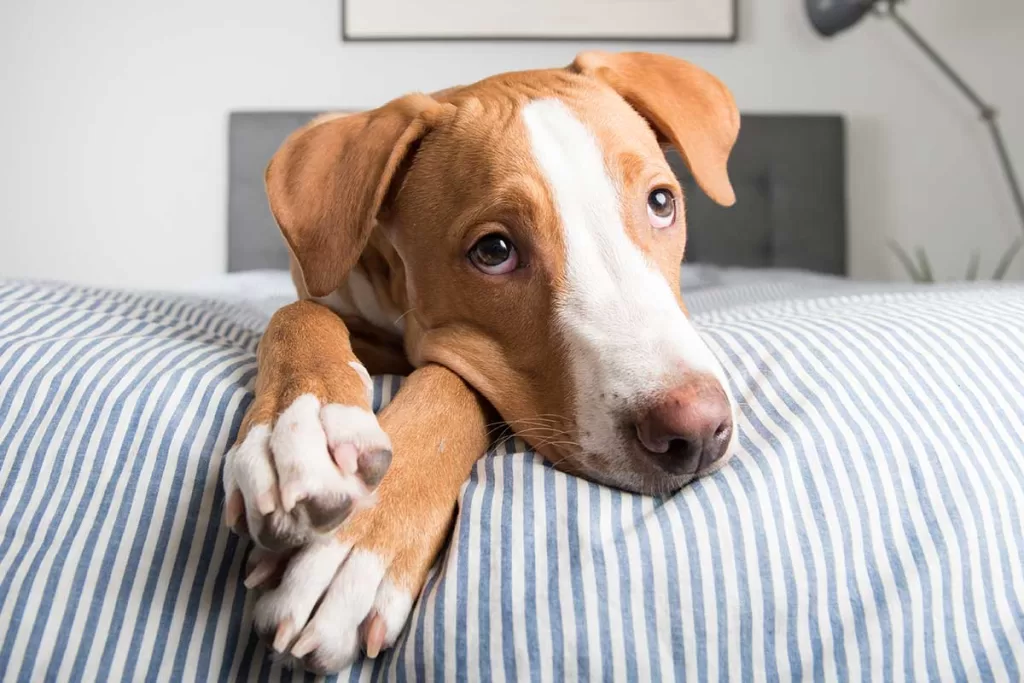If your dog leaks a few drops of urine when you come home or crouches and pees a little when meeting new people, you’re not alone. This behavior, often seen in puppies and shy dogs, is called excitement or submissive urination.
While it’s rarely a sign of defiance, understanding why it happens — and how to manage it — can help you strengthen your bond and build your dog’s confidence.
Reviewed by Dr. R. Divya, DVM | Written by Abhiram Raju, Pet Writer
Table of Contents
Why Dogs Pee When Excited
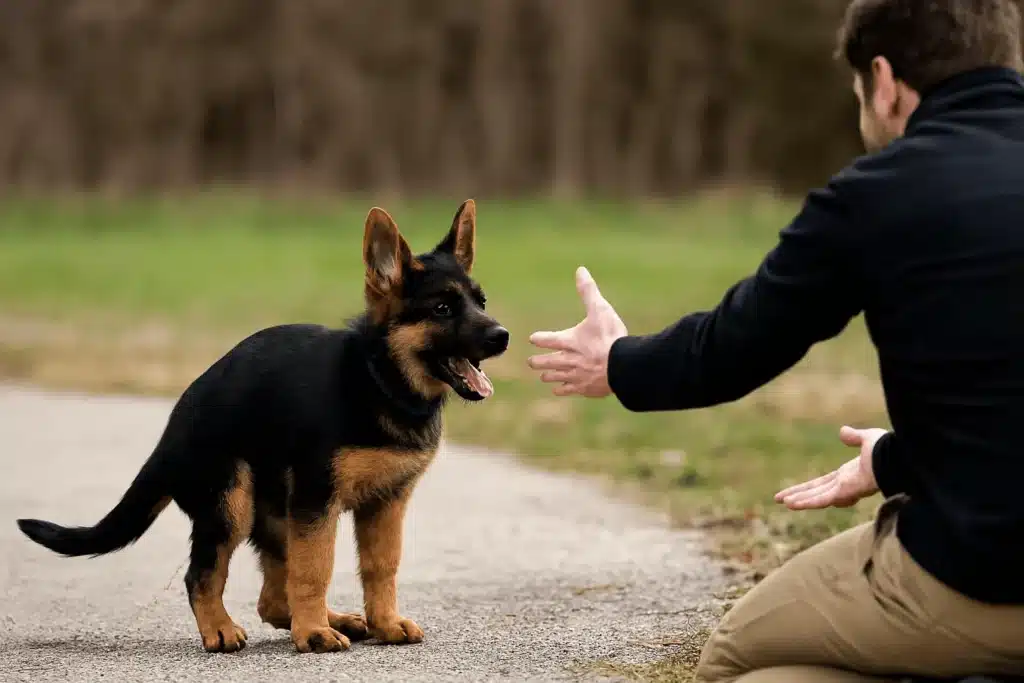
Dogs, especially puppies under one year old, often lose bladder control during moments of high excitement — greeting you, meeting guests, or anticipating playtime. This was the scenario when i had placed my puppy on the terrace for a couple of hours and went back to meet him, I have personally observed this pattern.
Later I came to realize from my Vet Dr. Divya that, This happens because the bladder sphincter muscles that control urination are not yet fully developed. When excitement spikes adrenaline levels, those muscles momentarily relax, causing small leaks or accidents.
According to the American Kennel Club (AKC), excitement urination usually fades as dogs mature and learn impulse control, though it can persist in high-energy breeds like German Shepherds and Labradors.
Common triggers:
- Owner returning home after an absence
- Loud voices, clapping, or sudden movement
- New visitors or other pets entering the room
- Anticipation of food or walks
The Difference Between Excitement and Submissive Urination
Though the two look similar, submissive urination has different emotional roots. It’s a social signal that says “I’m no threat.”
This usually appears in timid or previously scolded dogs, and is accompanied by body language such as:
- Crouching or lowering the body
- Tucked tail
- Avoiding eye contact
- Rolling slightly on the back
- Ears pulled back
Behaviorists at PetMD note that submissive urination often reflects insecurity or fear — not poor training. (PetMD, 2022)
When Peeing Might Signal a Medical Problem
Before labeling the issue as behavioral, rule out any medical causes for inappropriate urination.
Veterinarians stress that urinary tract infections (UTIs), bladder stones, incontinence, or hormone-related issues can mimic excitement urination (WebMD Pets, 2023).
See your vet if you notice:
- Frequent urination or straining
- Blood in the urine
- Dribbling even when calm
- Excessive thirst
- Sudden onset in an adult dog
A quick urine analysis can distinguish between behavioral and medical causes — and it’s best not to guess.
Training Steps to Stop Excitement or Submissive Urination
The goal is to build your dog’s confidence and self-control while keeping greetings calm and predictable.
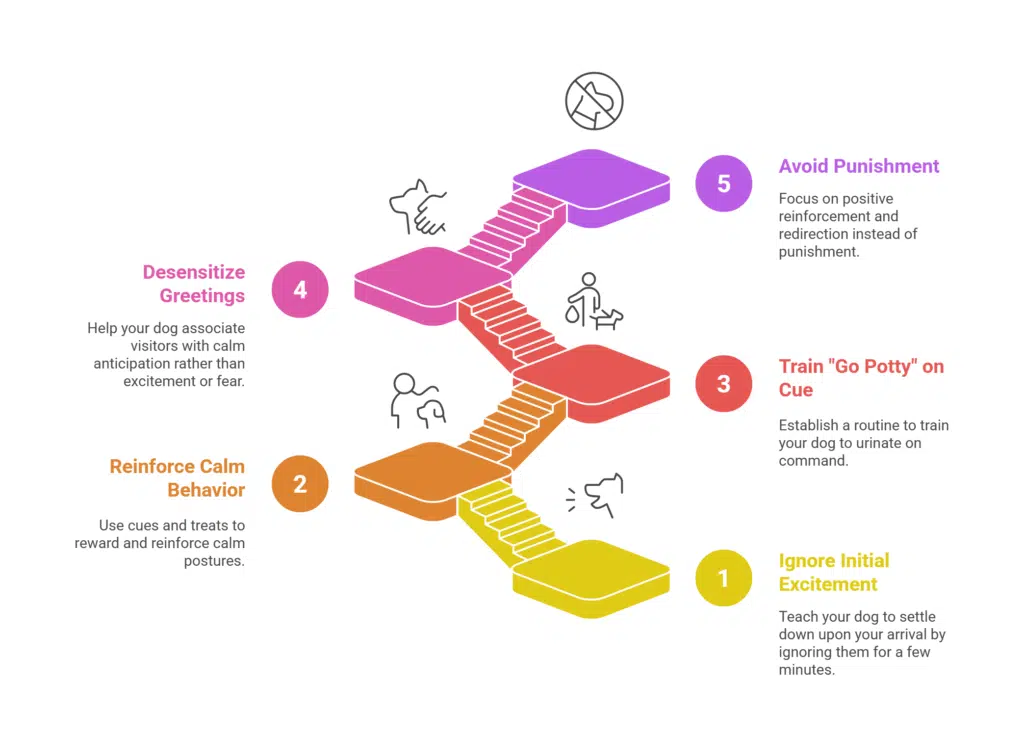
1. Keep greetings low-key
When you arrive home, ignore your dog for 2–3 minutes until they settle. Avoid high-pitched voices or overexcited touching. Once calm, reward them quietly with praise or a treat.
2. Reinforce calm behavior
Mark calm postures with a cue like “good calm” and give a small treat. Over time, your dog learns that calm behavior earns attention — not excitement.
3. Train “go potty” on cue
Regularly take your dog outside and pair a cue (“go potty”) with urination. Consistent timing helps strengthen bladder control and reduce surprise accidents indoors.
4. Desensitize greetings gradually
Have visitors enter quietly, avoid direct eye contact, and toss treats from a distance. This changes your dog’s emotional association from fear/excitement to calm anticipation.
5. Never punish or scold
Punishment amplifies anxiety and can worsen submissive urination. Instead, calmly clean up accidents and redirect behavior.
As the AKC and The Spruce Pets recommend, patience and positive reinforcement are the fastest way to end this behavior for good (The Spruce Pets, 2024)
Confidence-Building Activities
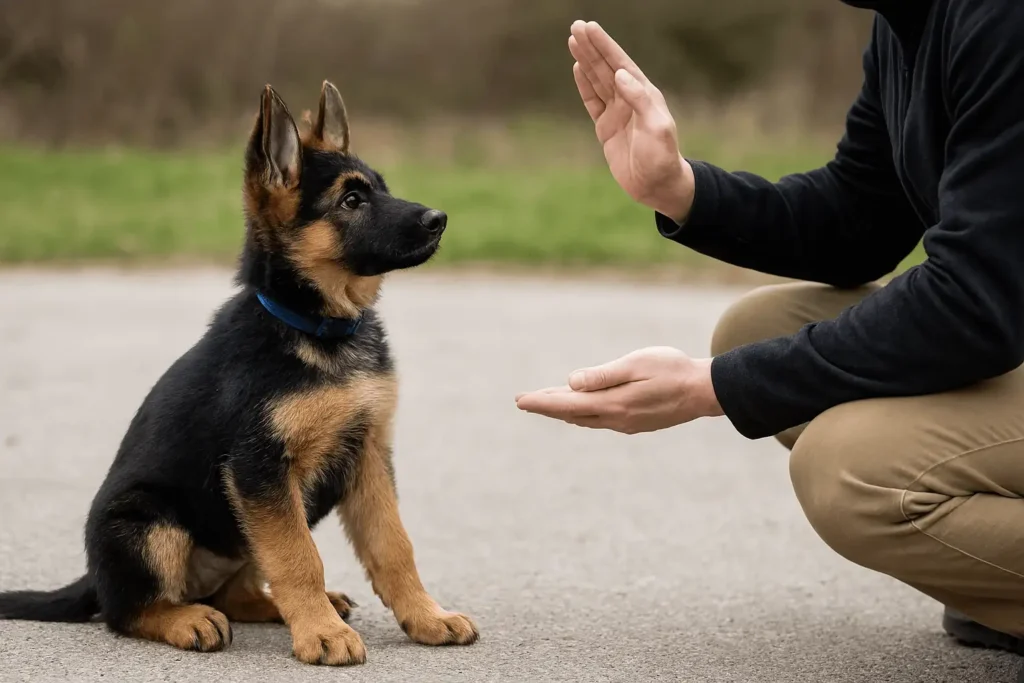
Dogs who urinate from fear often benefit from structured confidence training:
- Basic obedience: “Sit,” “Stay,” “Come,” and “Down” commands improve control and trust.
- Puzzle feeders: Keep the mind occupied and build self-assurance.
- New environments: Controlled socialization — new places, new people, calm exposure.
- Clicker training: Reinforces positive behavior without intimidation.
Even 10 minutes of daily mental enrichment can reduce anxiety-based urination.
How Long Until It Stops?
Most puppies outgrow excitement urination by 12–15 months, once their bladder muscles mature and confidence grows.
For submissive urination, improvement often depends on the dog’s history and temperament — rescue dogs or those with prior harsh handling may need longer and gentler rehabilitation.
What NOT to Do
Avoid these common mistakes:
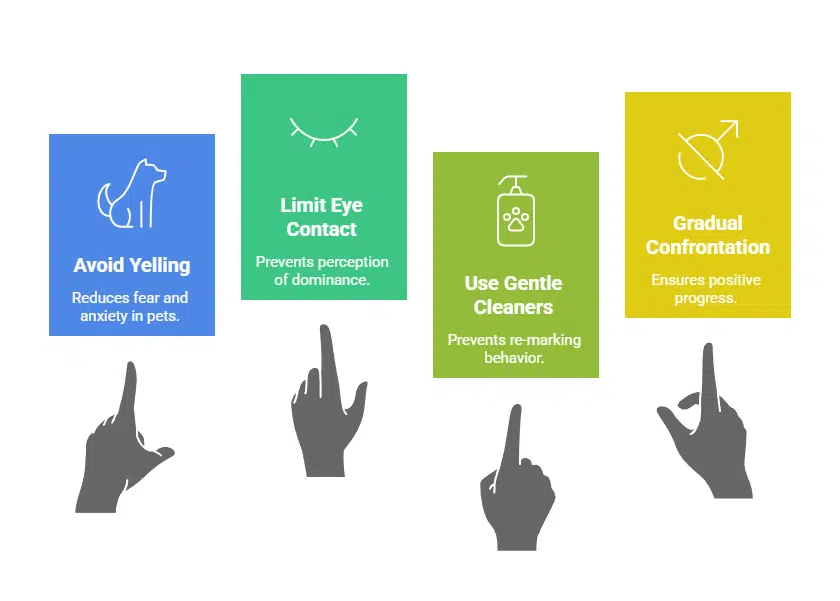
- ❌ Yelling or scolding — increases fear.
- ❌ Making direct eye contact during greetings — can be perceived as dominance.
- ❌ Overcleaning with ammonia-based products — the scent may trigger re-marking.
- ❌ Forcing confrontation with triggers — progress must be slow and positive.
Key Takeaway
When dogs urinate from excitement or fear, it’s not disobedience — it’s communication. Your patience, tone, and body language directly influence how quickly your dog learns to manage emotions and bladder control.
By staying calm, reinforcing confidence, and providing clear structure, you can eliminate accidents and nurture a stronger, more trusting relationship.
“Submissive or excitement urination is one of the most misunderstood behaviors in young dogs. It’s rarely a sign of defiance — more often it’s a confidence issue. Avoid punishment, reinforce calmness, and rule out any medical conditions early.”
— Dr. R. Divya, DVM (Veterinary Consultant)

